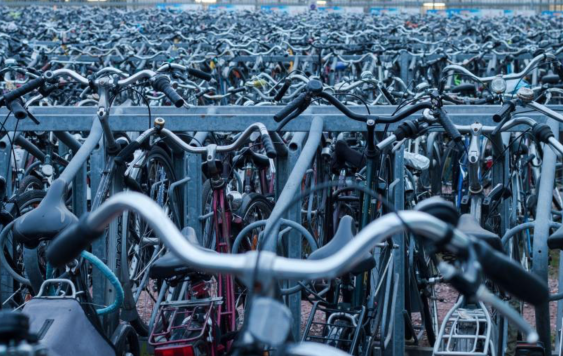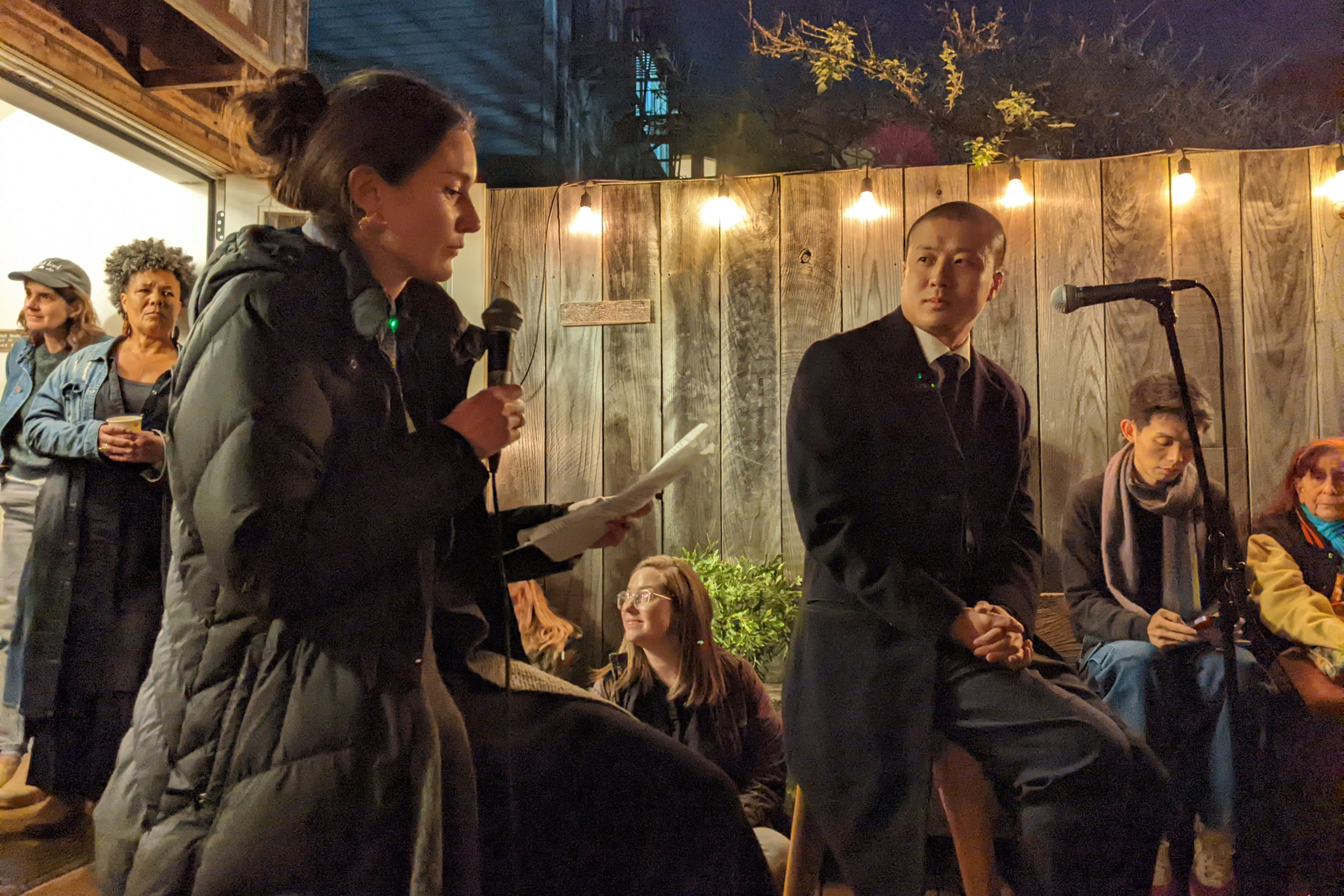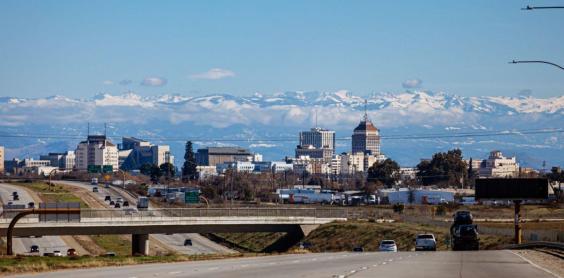As Sens. John Kerry (D-MA), Lindsey Graham (R-SC), and Joseph
Lieberman (I-CT) prepare to unveil a new climate change measure that
includes a tax on motor fuels, eight of their colleagues are urging
the trio not to forget local transportation planning -- and warning
that any new gas tax should be used to help pay for a new federal
infrastructure bill, not redirected for other purposes.
 Sen. Tom
Sen. TomCarper (D-DE) (Photo: Politics
Daily)
In a letter sent today to Kerry, Graham, and
Lieberman, the eight Senate sponsors
of a proposal to guarantee clean transport a share of the revenue
generated by a cap-and-trade system for cutting emissions asked that
their bill's core mission be preserved in the upper chamber's new "tripartisan"
climate bill.
The Senate letter follows a similar missive sent to Kerry, Graham,
and Lieberman last week by 27 groups representing road, transit,
bicycling, engineering, and labor interests.
Those groups warned the trio bluntly that using proceeds from a new
fuel tax for purposes other than funding new transportation projects --
such as rebating the money back to consumers, as Graham
suggested last month -- would exacerbate the already significant
funding crisis facing federal infrastructure policymakers.
But the hesitation of Kerry, Graham, and Lieberman's
colleagues ultimately could carry the most weight, given that the
trio's forthcoming climate bill would need to win backing from nearly
every Democratic senator in order to overcome a GOP filibuster.
"We
are concerned that, in addition to realizing insufficient
transportation emissions reductions, your legislation may not invest
revenue generated from the transportation sector into our crumbling
infrastructure," the group of eight wrote.
The letter was spearheaded by Sens. Tom Carper (D-DE) and Arlen
Specter (D-PA), lead authors of the so-called "CLEAN
TEA" bill, and signed by Sens. Kirsten Gillibrand (D-NY), Frank
Lautenberg (D-NJ), Ben Cardin (D-MD), Bill Nelson (D-FL), Michael Bennet
(D-CO), and Jeff Merkley (D-OR).
Their letter notes that the U.S. DOT estimates that $30 billion
more per year is needed simply to maintain the nation's existing
transport infrastructure. "Improving our infrastructure to provide for
the maximum economic
benefit," they continued, "will require an additional investment of $75
billion per year. If your legislation raises revenue from the
transportation sector but does not reinvest funds into infrastructure,
our efforts to enact a surface transportation authorization bill in the
near future will be constrained."
More than three dozen transportation reform and environmental
groups followed today with a third letter making similar points. An
excerpt from that letter follows after the jump, along with the full
transportation industry letter sent last week.
The transport-reform and environmental groups, including
Transportation for America, the Natural Resources Defense Council, and
the Sierra Club, joined Amtrak, and advocates for urbanism, bicycling,
and high-speed rail in their letter to Kerry, Graham, and Lieberman.
Here's an excerpt:
Providing some level of direct consumer rebates withinyour bill may be one way to address transportation costs. However, it is even more important to invest in essential public infrastructure andtechnology that will create jobs now and save Americans money ontransportation costs in the long term, including strategies such asexpanded public transportation, vehicle electrification, and completestreets. A robust portion of the revenue generated by your legislationshould be invested in such transportation technology and infrastructure.
Here's
a complete copy of the letter sent to the Senate trio last week by 27
transport industry groups, including the full list of signatories:
Dear Senators Kerry, Graham and Lieberman:
On
behalf of the organizations signed below, we write to urge you to
develop a proposal for climate and energy legislation that retains the
long-standing principle of dedicating revenues derived from
transportation motor fuels to improving the nation’s highway and public
transportation systems. To that end, we hope to work with you to
develop a strategy that promotes energy independence, reduces
greenhouse gas emissions, and improves the condition of critical
transportation infrastructure.
Federal motor fuel
user fees have supported the Federal Highway Trust Fund since 1956 and
the Mass Transit Account of the Trust Fund since 1982. These user fees
are the lifeblood of our highways and transit systems which move
millions of people and tons of cargo every day. Previous increases in
the federal motor fuels tax rate in 1990 and 1993 dedicated some
revenue to temporary, short-term deficit reduction, an important goal
that remains relevant today, but every other increase has supported
long-term investment in our transportation infrastructure. Since 1997
all motor fuel revenues have been deposited in the Trust Fund.
Our
surface transportation system faces monumental challenges. The needs of
our roads and transit systems far exceed current investment levels. The
U.S. Department of Transportation estimates that more than $30 billion
per year of new investment is needed simply to maintain our highways,
bridges, and transit systems in their current state of repair and $75
billion of new investment is needed annually to improve conditions and
performance. Unfortunately, the current authorizing law for highway and
transit programs expired last year and has been repeatedly extended on
a short-term basis. This prevents states and transit agencies from
advancing much-needed transportation projects that require predictable,
multi-year funding. Further, the Highway Trust Fund has required
several transfers of funds over the past three years and a restoration
of interest payments to remain temporarily solvent, but it still cannot
sustain the current rate of outlays. Any proposal to divert user fees
from motor fuels while our roads, bridges, and transit systems are
neglected is not sound policy.
The solution to the
transportation crisis is the quick passage of a new multi-year
authorization bill that accelerates job creation with significant new
investment and institutes a more performance-oriented federal
transportation program. Enacting a new transportation bill quickly will
be very difficult, if not impossible, should Congress approve
legislation that diverts revenue from carbon-based fees from motor
fuels away from the transportation investment.
Failure
to enact a transportation bill will not only harm our economic
competitiveness, it will impair the ability of states, counties, cities
and transit systems to reduce our dependence on foreign oil and reduce
transportation-related emissions. Without a new authorization bill,
expanding access to transportation choices like public transportation
that reduce emissions and modernizing our highways and infrastructure
simply cannot occur. The transportation sector accounts for 70 percent
of domestic oil consumption and one-third of carbon pollution.
New
fees placed on transportation fuels should be dedicated to the Highway
Trust Fund and invested along with other surface transportation funds
under a multi-year highway and transit authorization bill. Increasing
the availability of funds for transportation would help address
transportation infrastructure investment needs and expand access to
public transportation and other fuel-saving transportation
improvements. We hope to work with you to develop climate and energy
legislation that benefits the environment, as well as our economy, our
workers and the surface transportation infrastructure on which we all
rely.
Sincerely,
American Association of State Highway and
Transportation Officials (AASHTO)
American Road & Transportation
Builders Association (ARTBA)
American Public Transportation
Association (APTA)
Amalgamated Transit Union (ATU)
America Bikes
American Concrete Pavement Association (ACPA)
American Council
of Engineering Companies (ACEC)
American Highway Users Alliance
American
Society of Civil Engineers (ASCE)
American Traffic Safety Services
Association (ATSSA)
American Trucking Associations (ATA)
Associated
Equipment Distributors (AED)
Associated General Contractors of
America (AGC)
Association for Commuter Transportation (ACT)
Association
of Equipment Manufacturers (AEM)
Association of Metropolitan
Planning Organizations (AMPO)
International Union of Operating
Engineers
Laborers’ International Union of North America (LiUNA!)
League
of American Bicyclists
National Asphalt Pavement Association (NAPA)
3
National Association of Counties (NACo)
National Association
of Development Organizations (NADO)
National Ready Mixed Concrete
Association (NRMCA)
New Starts Working Group
Safe Routes to
School National Partnership
Transportation Trades Department,
AFL-CIO
United Brotherhood of Carpenters and Joiners of America




